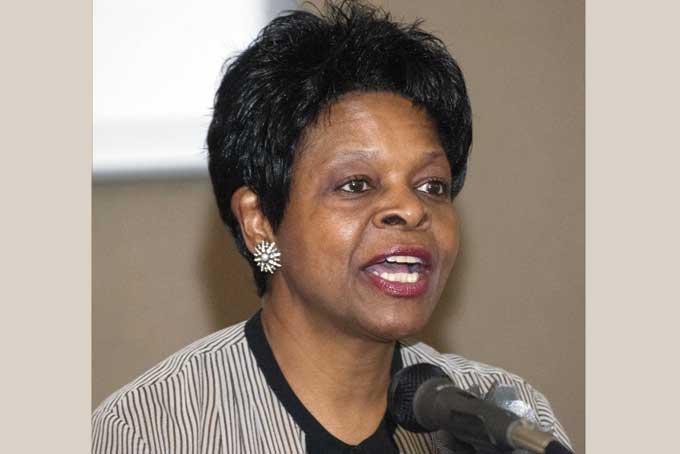
JACKIE DIXON (Photos by Gail Manker)
According to Executive Communications Group, a firm that specializes in communication and image, perceptions about a woman’s confidence, intelligence, and authority are developed within 5 to 30 seconds of meeting her. Similarly, the book, “At Ease Professionally: An Etiquette Guide for the Business Arena,” says that 58 percent of a woman’s appeal are derived from her looks and body language.
Whether women like it or not, their dress and appearance have a direct correlation with their ability to advance in the workplace. At the Pennsylvania Diversity Council’s Women in Leadership Symposium, the panelists spent a lot of time discussing this topic of workplace dress and appearance.
“Allegedly as women, we should never wear more than 13 accessories, but I like to decorate myself,” said Michelle Rochon, director of talent acquisition for WESCO Distribution, about her initial apprehension following this kind of rule. “But, I decided to take that into account because it is distracting.”
MICHELLE ROCHON
The annual symposium, held this year on May 29 at Chatham University, looked at barriers to career and workplace advancement such as appearance and communication styles. Led by a panel of female executives, the event provided insight on how women are overcoming personal and professional challenges to become leaders in their organizations.
“I hope these women realize the power to succeed lies within them,” said Janet Manuel, director of human resources for Coventry Health Care and president of the Pittsburgh Diversity Council. “I hope this symposium serves as the power to inspire them to overcome barriers.”
For women, and African-American women in particular, the key to getting ahead might not be as simple as how they dress or communicate.
According to a study by Catalyst, a nonprofit organization aimed at expanding opportunities for women in business, 37 percent of African-American women see their opportunities for advancement to senior management positions in their companies declining over time. Thirty-two percent of the women surveyed also said their White colleagues perceive them as underqualified.
“I think there’s a lot of pressure on women,” said Jackie Dixon, director of government relations for Giant Eagle. “I think we have to understand there is still discrimination against women in the workforce.”
JANET MANUEL
Dixon and fellow panelist Rochon agreed mentoring was key to helping African-American women advance. According to the Catalyst study, not having an influential sponsor or mentor was the most common career barrier for Black women.
“I think we need to extend ourselves to the community and African-American women in particular,” Rochon said. “There’s so much opportunity out there for us to help one another.”
The Pennsylvania Diversity Council was organized in 2010 in response to pay disparities.
The organization is committed to transforming the workplace into an environment “where people are valued for their uniqueness and differences, and are confident that their contributions matter.”
Follow @NewPghCourier on Twitter https://twitter.com/NewPghCourier
Like us at https://www.facebook.com/pages/New-Pittsburgh-Courier/143866755628836?ref=hl
Download our mobile app at https://www.appshopper.com/news/new-pittsburgh-courier